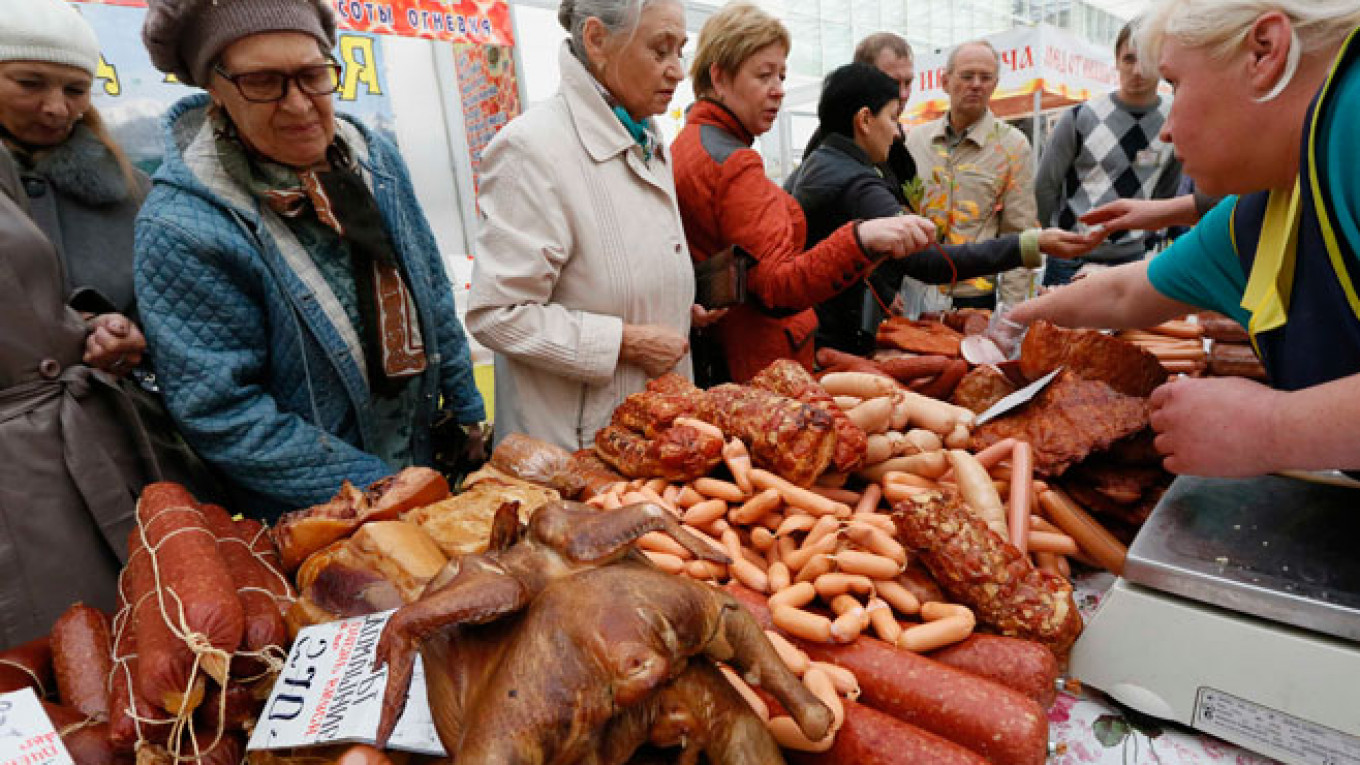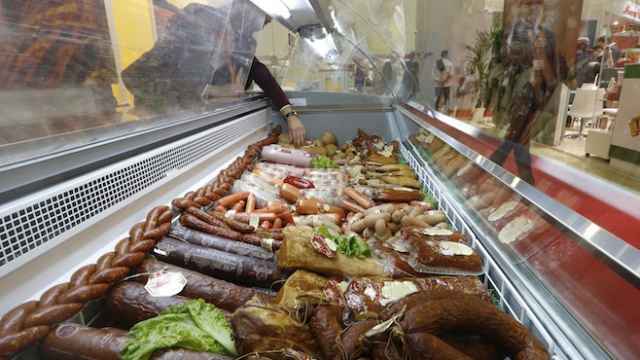In an ambitious plan that will demand substantial investment and state support, the Russian government intends to replace 65 percent of imported meat, 30 percent of dairy and 30 percent of imported vegetables with domestic goods by 2020, according to an order published Wednesday on the government's website.
Politicians have promised a renaissance in Russian agriculture ever since Russia in August banned imports of meat products, fish, fruit, vegetables and dairy from countries with sanctions against Russia over the crisis in Ukraine.
The bans hit consumers first: Combined with the steady devaluation of the ruble, the rising price of these key food groups pushed inflation up to 8 percent in September, according to Rosstat, with prices showing no sign of falling soon.
Prime Minister Dmitry Medvedev has frequently referred to the bans as an opportunity to lower Russia's dependence on imports of foreign food, a stance he reiterated Wednesday at an agricultural expo in Moscow.
At the expo, Medvedev announced that he has already confirmed a "roadmap" on import substitution for 2014-15, TASS reported.
The roadmap includes measures for more efficient use of agricultural land and improvements in veterinary and phytosanitary monitoring. Implementing these plans will allow Russia to reduce imports of meat from 21.6 percent to 7.7 percent, imports of milk and dairy products from 23.6 to 16.6 percent, and imports of vegetables from 14.6 to 10.1 percent by 2020, according to the government order.
Food market analysts and industry players told The Moscow Times previously that Russia's agricultural production can in fact be substantially increased — but only if it receives substantial investment and carefully administered state support over a period of at least five years.
Medvedev said that extra state funds had been allocated for the support of agriculture despite Russia's "difficult and extremely strict budget," but did not name the sum involved, TASS reported.
A Message from The Moscow Times:
Dear readers,
We are facing unprecedented challenges. Russia's Prosecutor General's Office has designated The Moscow Times as an "undesirable" organization, criminalizing our work and putting our staff at risk of prosecution. This follows our earlier unjust labeling as a "foreign agent."
These actions are direct attempts to silence independent journalism in Russia. The authorities claim our work "discredits the decisions of the Russian leadership." We see things differently: we strive to provide accurate, unbiased reporting on Russia.
We, the journalists of The Moscow Times, refuse to be silenced. But to continue our work, we need your help.
Your support, no matter how small, makes a world of difference. If you can, please support us monthly starting from just $2. It's quick to set up, and every contribution makes a significant impact.
By supporting The Moscow Times, you're defending open, independent journalism in the face of repression. Thank you for standing with us.
Remind me later.






